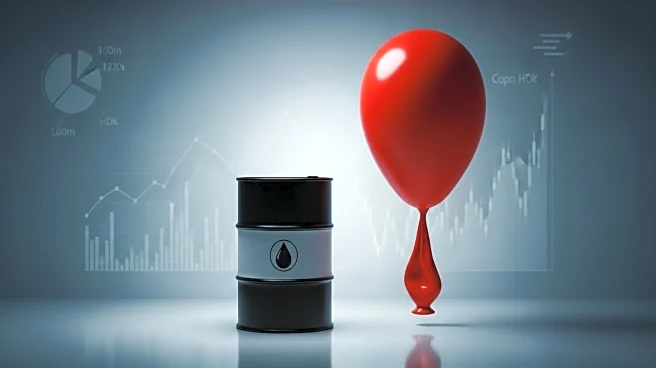What's Happening?
The Russian economy is experiencing a slowdown, exacerbated by a fuel crisis and rising inflation. Gasoline prices have surged by over 30 percent, impacting daily expenses for consumers like taxi drivers in Moscow. The fuel shortage is largely attributed to Ukrainian drone attacks that have disrupted up to 17 percent of Russia's refining capacity. The economic deceleration follows years of growth driven by government spending on the Ukraine war, with defense and security accounting for 41 percent of all spending in 2025.
Why It's Important?
The economic slowdown poses challenges for the Russian government, which is trying to balance wartime spending with domestic economic stability. Rising inflation and fuel prices affect consumer purchasing power and could lead to public dissatisfaction. The situation also impacts Russia's ability to maintain its wartime footing, potentially influencing its military strategy and political decisions. Economists warn of possible stagnation or recession, which could further strain the economy and lead to increased unemployment.
What's Next?
The Russian government may consider tax increases to address budget deficits, potentially impacting consumer prices further. Economic measures to stabilize inflation and support growth are likely to be prioritized. The Kremlin's response to the economic challenges will be crucial in maintaining public support for the war effort and ensuring long-term economic stability.
Beyond the Headlines
The economic slowdown could lead to increased recruitment for the military as individuals seek stable income through defense contracts. This dynamic may inadvertently support the Kremlin's military objectives despite economic hardships. Additionally, the situation raises questions about the sustainability of Russia's economic model, heavily reliant on oil revenues and military spending.










